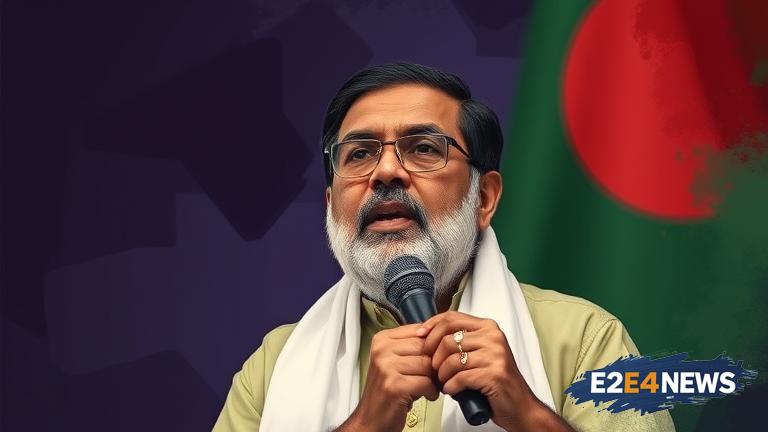In a recent statement, Bangladeshi politician Salahuddin expressed his concerns about the current state of politics in the country, warning of a potential crisis if the government does not take immediate action to address the issues. He emphasized the need for electoral reform, citing the importance of ensuring free and fair elections. Salahuddin also criticized the current political climate, stating that it is marked by misdirection and a lack of transparency. He argued that the government is not doing enough to address the concerns of the people and is instead focused on maintaining its own power. The politician called for a more inclusive and representative political system, one that truly reflects the will of the people. He also emphasized the need for greater accountability and transparency in government, stating that this is essential for building trust and confidence in the political system. Salahuddin’s comments come at a time of growing unrest in Bangladesh, with many citizens expressing frustration with the current government and calling for change. The country has a long history of political instability, and many are worried that the current situation could escalate into violence. Salahuddin’s warnings are therefore being taken seriously, and many are calling for the government to take heed of his words. The politician’s advocacy for electoral reform is also being seen as a positive step, as it is widely recognized that the current electoral system is in need of overhaul. However, it remains to be seen whether the government will take action to address the issues raised by Salahuddin. The international community is also watching the situation in Bangladesh closely, with many calling for the government to respect the rights of its citizens and ensure that the political process is fair and transparent. In recent years, Bangladesh has made significant progress in terms of economic development, but the country still faces many challenges, including poverty, corruption, and political instability. The government has taken steps to address some of these issues, but much work remains to be done. Salahuddin’s comments are therefore a timely reminder of the need for continued reform and progress in Bangladesh. The country’s future depends on its ability to build a stable and inclusive political system, one that truly represents the will of the people. As the situation continues to unfold, it is likely that Salahuddin’s warnings will be closely watched, and his advocacy for electoral reform will be seen as an important step towards building a more democratic and accountable government.
